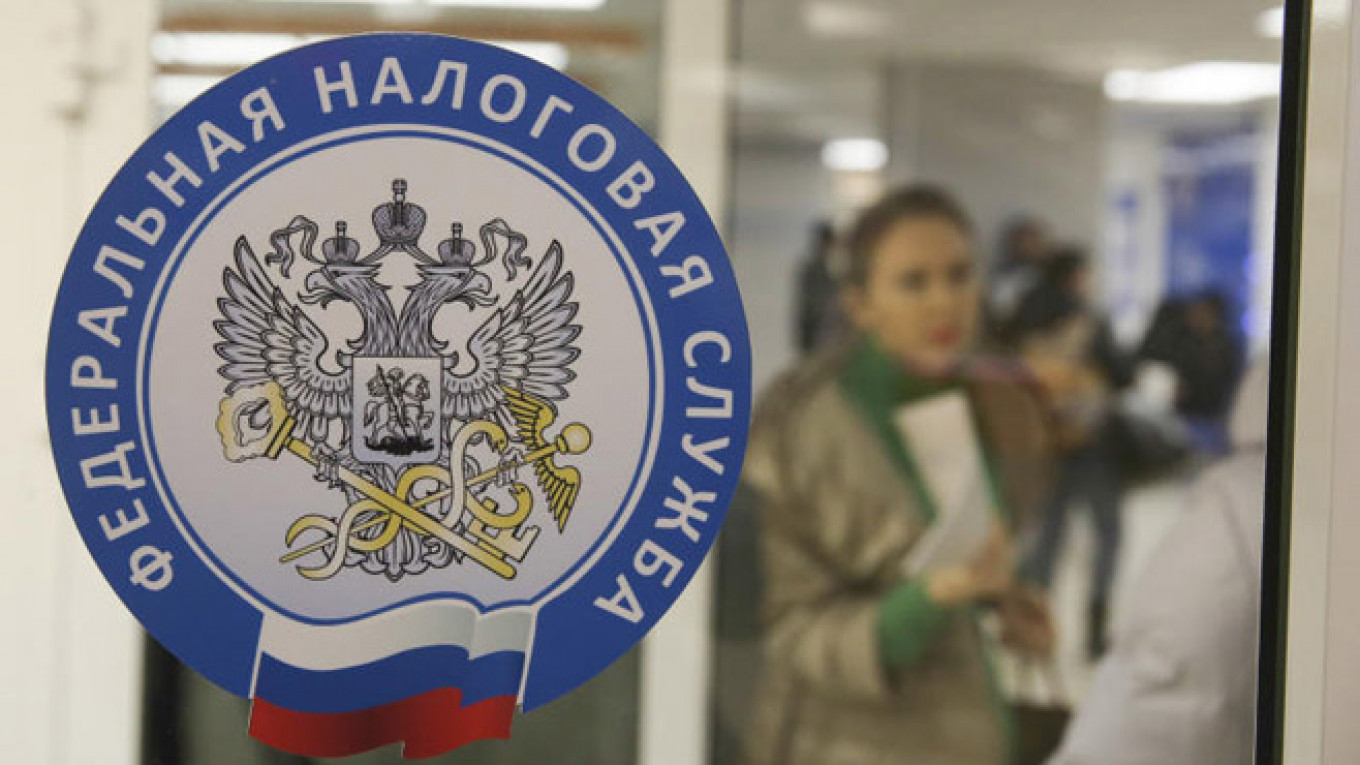Representative and branch offices of foreign companies working in Russia are in a race against time to re-register with the authorities or lose their license to operate in the country.
The re-registration was intended to streamline bureaucracy for foreign firms, but organizational failures and lack of proper warning have left companies scrambling to react in time for the April 1 deadline. Of the thousands of representative offices working in Russia, "some will slip through the cracks," said Daniel Klein, parter at Moscow law firm Podolsky & Klein.
Those that do could see their business become illegal overnight and face the cancellation of foreign staff visas, which are sponsored by employers. To restart work they would have to start from scratch a registration process that takes months.
The fiasco is a blow to Russia's business climate that comes as the economy hurtles toward a deep recession this year due to cheap oil, currency crisis and Western sanctions on Moscow over its actions in Ukraine.
Impossible Task
The re-registration law was passed last May and transfers responsibility for accreditation of foreign representative and branch offices to the Federal Tax Service. Coming into force on Jan. 1, the law gave a three-month window to foreign firms to re-register before April 1. Offices of foreign financial and civil aviation firms do not need to re-register.
But the implementation was botched, lawyers said. The tax service did not respond to a request for comment before this article went to print.
Prioritet, a Moscow law firm, began calling foreign companies in November, said Yulia Vasilyeva, head of a department at Prioritet that specializes in accrediting foreign representative offices. Between 20 and 30 percent did not know they would have to re-register, Vasilyeva said.
Even companies registering offices in December last year received no warning. "No one told them anything," Vasilyeva said.
Those who knew about the changes were also powerless, she said — the tax authorities did not release forms or guidelines on how to re-register until February.
This narrowed the window from three months to two, immediately excluding larger companies with head offices in bureaucratic cultures. This cut Chinese and Middle Eastern companies out straightaway, Vasilyeva said.
Faster-moving European and U.S. companies still stand a chance, though a slim one. It takes on average two to three weeks to prepare the re-registration forms, said Klein. But "if it's a big company, it won't be done in a week. It could take six months," he added.
Vasilyeva said, "the task was impossible from the outset."
Stand in Line
For those companies that managed to finish their paperwork in time, the situation isn't much better. Only two people have been posted at the tax service's office in central Moscow to accept the re-registration forms, and they only work for two hours a day — between 9:30 a.m. and 11:30 a.m.
"People arrive at 8 a.m. and say it's pointless — you need to get there at 6," Vasilyeva said, citing a case when a colleague arrived at 8 a.m. to take 67th place in a line that continued growing after his arrival.
Last week, the tax service posted a third clerk to accept the documents, but it is still nowhere near enough to service everyone in time, she said, adding, "Rumors are swirling in the queues that they'll extend [the deadline], but so far it's only rumors."
Consequences
If the rumors turn out to be false, companies that miss the deadline could lose their accreditation and foreign staff visas.
"It's a very dramatic situation. If you fail to make the deadline, your contracts are potentially invalid, labor contracts could come under question [as well as] work permits and foreign people's right to stay in Russia," Klein said.
Then they can either forsake their Russian operations or register again, but getting new accreditation involves paperwork that cannot be gathered overnight. Those that miss the deadline face "no man's land for two and a half to three months." Klein said.
They would also have to pay a 120,000 ruble ($2,000) processing fee, Vasilyeva said.
Motivation?
Though the re-registration law was passed after the first Western sanctions were imposed on Moscow last spring, lawyers said the legislation has been in discussion for at least two years and predates the current period of East-West tensions — which has seen trade and cross-border capital flows restricted by sanctions enforced by both sides.
Instead of emerging from the top down, foreign businesses themselves pushed for the law, Vasilyeva said. Many had complained about the inconveniences of the old registration system.
But Vasilyeva still questioned the motives of the tax service, pointing to the 120,000 ruble fee for new registrations and suggesting that the bureaucracy may simply be trying to enrich itself.
"Such incompetence is being perpetrated. Why? It's as if they've given themselves the task of making as much money as possible," she said.
Paraphrasing Viktor Chernomyrdin, a Russian prime minister in the 1990s, she said, "they wanted the best but it turned out as always."
Contact the author at p.hobson@imedia.ru
A Message from The Moscow Times:
Dear readers,
We are facing unprecedented challenges. Russia's Prosecutor General's Office has designated The Moscow Times as an "undesirable" organization, criminalizing our work and putting our staff at risk of prosecution. This follows our earlier unjust labeling as a "foreign agent."
These actions are direct attempts to silence independent journalism in Russia. The authorities claim our work "discredits the decisions of the Russian leadership." We see things differently: we strive to provide accurate, unbiased reporting on Russia.
We, the journalists of The Moscow Times, refuse to be silenced. But to continue our work, we need your help.
Your support, no matter how small, makes a world of difference. If you can, please support us monthly starting from just $2. It's quick to set up, and every contribution makes a significant impact.
By supporting The Moscow Times, you're defending open, independent journalism in the face of repression. Thank you for standing with us.
Remind me later.


